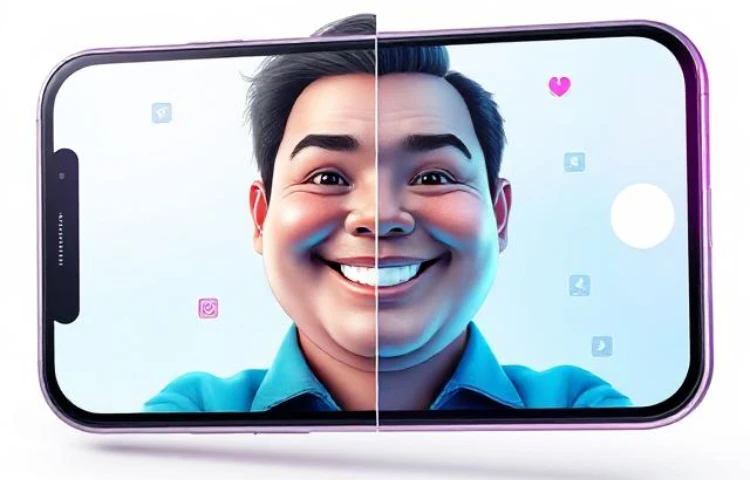

Prefer to listen instead? Here’s the podcast version of this article.
In the ever-evolving landscape of social media, a new trend has emerged that leverages artificial intelligence (AI) to alter users’ appearances: the “chubby filter.” This AI-driven feature digitally adds weight to users’ faces and bodies, allowing them to see themselves with a fuller physique. While some may view this as a harmless novelty, the trend has sparked significant controversy and raised important ethical questions.
The “chubby filter” utilizes AI algorithms to modify selfies and videos, presenting users with an altered version of themselves that appears heavier. This trend has gained traction across various social media platforms, with users sharing their transformed images and reactions. However, the seemingly playful nature of this filter belies deeper societal implications.
Health and wellness experts have been vocal in their criticism of the “chubby filter,” labeling it as “cruel and deeply damaging.” Influencer Steph Claire Smith condemned the trend as toxic, highlighting its potential to harm body image and self-esteem. Melbourne psychologist Carly Dober echoed these concerns, noting the possible mental health repercussions, including depression and anxiety. Critics argue that the filter perpetuates body shaming and fatphobia, reinforcing harmful societal standards that equate thinness with beauty and success.
The popularity of the “chubby filter” underscores the persistent issue of fatphobia in society. Many users express discomfort or even disgust when confronted with AI-generated images of themselves at a higher weight, revealing deep-seated biases against larger body types. This trend not only reflects but also reinforces societal preferences for thinness, contributing to negative self-perception and discrimination against individuals with larger bodies. [dailytelegraph]
The proliferation of such filters raises questions about the responsibility of social media platforms in moderating content that can negatively impact users’ mental health. While these platforms offer creative tools to enhance user engagement, they must also consider the ethical implications of features that may perpetuate harmful stereotypes or encourage body dissatisfaction. [dailytelegraph+2news+2New York Post+2]
The emergence of AI-generated “chubby filters” serves as a stark reminder of the ongoing challenges related to body image and societal standards. As AI continues to integrate into social media, it is crucial for both developers and users to be mindful of the potential psychological impacts of such technologies. Promoting inclusivity and body positivity should remain at the forefront of digital innovation, ensuring that technological advancements contribute to the well-being of all users.
WEBINAR